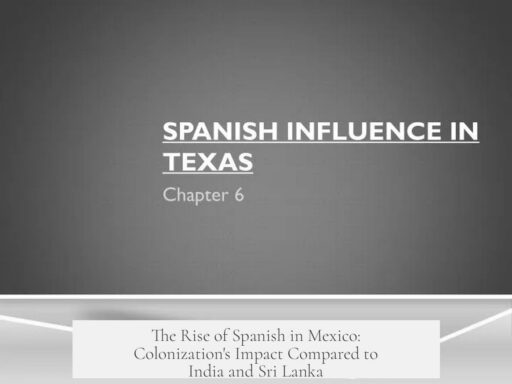Pope Francis referred to an extraordinary situation in the early 1960s when Pope Paul VI permitted nuns in the Belgian Congo to use contraceptives due to the threat of rape during violent conflicts. These nuns were victims of brutal attacks amid the Congo Crisis, particularly during the Simba rebellion, a left-wing insurgency marked by widespread sexual violence. This exception highlighted the Church’s recognition of contraception’s moral acceptability in cases of non-consensual sex, distinguishing it from its general opposition to contraceptive use.
The nuns involved were Catholic religious sisters operating in the Congo during one of the continent’s most turbulent periods. The Belgian Congo, formally independent as the Republic of the Congo since 1960, plunged into chaos after liberation. The post-independence era saw multiple armed conflicts, notably the Simba rebellion (1964-1965). The Simba rebels, Marxist-inspired and supported by foreign powers such as the Soviet Union, Cuba, and Tanzania, opposed the Western-aligned central government. This rebellion caused immense violence, including the hostage-taking and abuse of priests and nuns.
Many Catholic nuns, both Congolese and European missionaries, were caught in the violence. They were especially targeted by the Simbas, who perpetrated mass kidnappings and brutal rapes. This wave of violence, publicized globally, created a dire context where Pope Paul VI authorized the use of contraceptives, specifically oral contraceptive pills, to prevent pregnancy resulting from rape. The nuns, who had taken vows of celibacy, were suddenly at risk of sexual violence that violated their bodily integrity and religious commitment.
This permission was a significant moment in Catholic moral theology. The Church’s traditional teaching, as reaffirmed in Pope Paul VI’s 1968 encyclical Humanae Vitae, holds that sexual acts within marriage must be both unitive and open to procreation to be moral. Contraception for married couples is generally forbidden because it deliberately frustrates the procreative purpose. However, in the case of forced, non-consensual sex, like rape, the unitive and procreative elements are absent. Consequently, the Church considers contraceptive use in such cases morally permissible because the act itself is a violation, not a consensual marital union.
Brian Johnstone, a Redemptionist friar and theology expert, explains that the contraceptives given to these nuns were preventative, not emergency contraception or abortifacients. This fits the moral reasoning that preventing conception under threat of rape is acceptable since the sexual act lacks consent and is inherently immoral. However, if a pregnancy did occur, Humanae Vitae explicitly forbids abortion as always immoral, a position Pope Francis reiterates strongly.
The political backdrop of this decision was the Congo Crisis, a complex civil war after Congo’s independence from Belgium in 1960. Initial hopes for a prosperous, stable nation gave way to a multi-faceted war involving ethnic disputes, Cold War rivalries, and socio-political upheaval. The Simba rebellion attracted international attention with its hostage crises in cities like Stanleyville, where numerous Europeans and missionaries were captured. This environment was exceptionally dangerous for religious workers who were left vulnerable without military protection. Both European and Congolese nuns faced terrible abuses, including sexual violence.
Religious presence in the Belgian Congo was tightly intertwined with European colonial structures. Catholic missionaries operated schools and medical facilities but had limited roles in political or military power. Many European nuns remained during the conflict out of commitment to care, despite risks. The killing of entire mission staffs, such as at Lubutu in 1963, underscored the extreme danger. Congo-origin nuns likewise lacked the protection former colonial powers could have offered, placing them at additional risk during uprisings.
This historical example came to light again when Pope Francis, addressing the contraception debate amid the Zika virus outbreak, mentioned these nuns. He drew a parallel between the moral acceptability of contraception to prevent conception in cases of sexual violence and the question of contraception use to avoid pregnancy during a health crisis threatening unborn children. However, the pope firmly maintained that abortion remains unequivocally forbidden by the Church.
Francis’ reference sparked various reactions. Some Church conservatives stress that this does not change the Church’s general opposition to contraception. Progressive theologians highlight this case as a precedent for nuanced moral reflection during crises. The debate underscores the complex pastoral and ethical challenges the Church faces in balancing doctrine with real-world suffering.
| Aspect | Details |
|---|---|
| Nuns in Question | Catholic religious sisters in the Belgian Congo during 1960s conflict |
| Context | Congo Crisis, especially Simba rebellion (1964-65) involving Marxist rebels and widespread violence |
| Violence Faced | Mass kidnappings, hostage situations, and systematic rapes of priests and nuns |
| Church Response | Pope Paul VI authorized oral contraceptive use to prevent pregnancy resulting from rape |
| Moral Theology | Contraception acceptable in cases of non-consensual sex; abortion remains forbidden |
- The nuns were Catholic missionaries in conflict-ridden Congo, vulnerable to sexual violence.
- The Congo Crisis created circumstances of extreme violence, including rape used as a weapon.
- Pope Paul VI allowed contraceptive use to prevent pregnancy from rape, respecting celibacy vows.
- Church doctrine distinguishes consensual marital sex from non-consensual acts, allowing contraception in the latter case.
- No change in Church teaching on abortion; abortion is always considered immoral.


